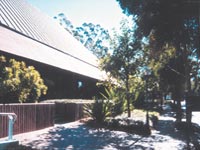Special Education - EDSTBS8910
Stream Summary
Faculty: Faculty of Arts&Social Science
School: School of Education
Contact: Dr Iva Strnadova
Program: 8910 - Education
Award(s):
Master of Education (Specialisation)
Information valid for students commencing 2013.
Students who commenced prior to 2013 should go to the Handbook's Previous Editions
Stream Outline
Graduate Attributes
- Demonstrate an advanced understanding of the field of education as it relates to their specialist area of study, and the ability to synthesize and apply disciplinary principles and practices to new or complex environments.
- Demonstrate an in-depth understanding of research-based learning and the ability to plan, analyse, present implement and evaluate complex activities that contribute to advanced professional practice and/or intellectual scholarship in education.
- Demonstrate advanced critical thinking and problem solving skills.
- Communicate effectively to a range of audiences, and be capable of independent and collaborative enquiry and team-based leadership.
- Demonstrate an understanding of international perspectives relevant to the educational field.
- Demonstrate an advanced capacity to recognise and negotiate the complex and often contested values and ethical practices that underlie education.
Stream Structure
- EDST5106 Behaviour Management (6 UOC)
- EDST5107 High Incidence Disabilities (6 UOC)
- EDST5111 Intellectual Disabilities (6 UOC)
- EDST5113 Students with ASD (6 UOC)
- EDST5118 Prof Practice SpEd (6 UOC)
- EDST5128 Communication Disorders (6 UOC)
- EDST5129 Transitions (6 UOC)
- EDST5138 Inclusive Education (6 UOC)
- EDST5106 Behaviour Management (6 UOC)
- EDST5107 High Incidence Disabilities (6 UOC)
- EDST5111 Intellectual Disabilities (6 UOC)
- EDST5113 Students with ASD (6 UOC)
- EDST5118 Prof Practice SpEd (6 UOC)
One research methodology course from the following list
- EDST5888 Research Project (6 UOC)
AND
- Two other elective courses offered by the School of Education
One or both of the two elective courses may be education courses outside the field of special education (e.g., educational leadership, gifted education, TESOL etc.)









